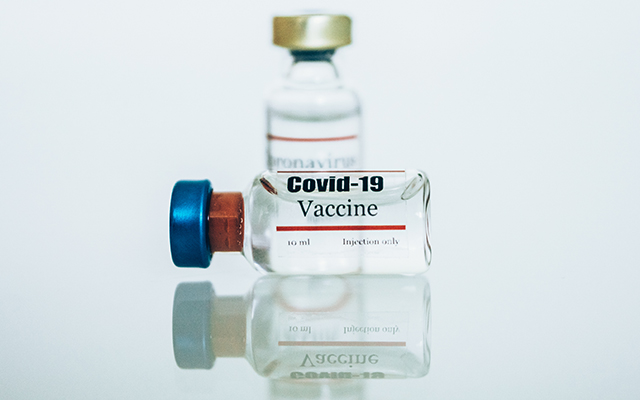Two Fridays ago, I received the Johnson & Johnson COVID-19 vaccine. I didn’t seek out or expect the one-shot option — being mildly needle-averse, I’d finally resigned myself to the idea of two jabs — but, I have to say, I was relieved to get it done in one swoop.
Not unexpectedly, I felt a variety of side effects in the days following my shot: chills, aches, fatigue, etc. It sucked, but it was manageable. I slept, ate some pho, got a lot of reading done; it was a quiet weekend. Thankfully, I felt as good as new by Monday.
But when I woke up on Tuesday, I read that the Johnson & Johnson vaccine was being paused and investigated for a possible connection with a rare blood-clotting disorder. My heart sank.
My anxiety flared higher when I learned that six women between the ages of 18 and 48 had developed the extremely rare, potentially fatal condition within two weeks of receiving the J&J jab. One of the women died, and another is in critical condition. Scientists are currently unaware of underlying conditions related to the reaction.
I am a generally healthy 24-year-old woman, but I couldn’t help feeling alarmed. My brain, predisposed to anxious thought patterns, instantly began catastrophizing: Women ages 18 to 48? That sounds like me. What if I’m the next case? Do I need to go to the hospital? How do I know if I develop this disorder? Am I going to die?
Though I tried to reason with myself — the connection isn’t confirmed, almost every medication has some frightening potential effects, you feel absolutely fine right now — the extensive media coverage fueled my stress response. If there wasn’t cause for concern, there wouldn’t be so much coverage, right?
Finally, with my anxiety somewhere between a robust candle flame and a brushfire, I came across the salve I needed in the New York Times:
As of April 15, 7.4 million people in the United States had received the vaccine without any other serious adverse reactions reported. Experts have yet to determine to what extent, if any, the vaccine is responsible for the clots. . . . U.S. and European public-health experts have emphasized that for most people, the benefits of the COVID vaccines far outweigh the risks.
About one in a million J&J vaccinations are now under investigation. If there is indeed a risk of blood clots from the vaccine — which has yet to be determined — that risk is extremely low. The risk of getting COVID-19 in the United States is far higher.
The FDA recommends that people who have received the Johnson & Johnson vaccine within the past three weeks should contact their doctors if they experience severe headaches, abdominal pain, leg pain, or shortness of breath. Doctors seeing people with those symptoms, particularly if the patients are young women, should ask if they recently received a Covid vaccination, Dr. Anthony Fauci, the Biden administration’s chief science adviser, said at a news briefing on Tuesday.
Unlike most reports I’d encountered, this piece struck the right balance, providing transparent information without suggesting a need for panic. Here was an honest and balanced description of the issue.
Thankfully, this perspective was enough to rock me out of my spiral and, more important, remind me why I’d gotten the vaccine in the first place. At this point, there have been more than 31 million recorded cases of COVID-19 in the United States, according to the Centers for Disease Control. Of those cases, more than 560,000 have been fatal — and that number continues to grow.
I knew all along that there would be risks with a vaccine, and I decided months ago that the risks would be worth it to me; everyone has a right to do that risk assessment for themself. If I could go back and do things differently, I might elect to receive a different vaccine — but maybe not. I know I wouldn’t change my mind about getting vaccinated, no matter what the CDC and FDA discover in their investigation.
And even though the initial headlines sent me spinning, I’m grateful to the scientists conducting this investigation as well as the journalists who will continue to create honest reports about its progress. As a fact checker, I understand that knowledge has power, and I strongly believe that transparency is essential to our campaign against the coronavirus.
In the meantime, I’m going to follow the FDA’s advice and watch for concerning symptoms and warning signs. I’ll contact my doctor if necessary. While I don’t expect any issues to arise, I have no problem acting out of an “abundance of caution.”





This Post Has One Comment
What an extremely well written and transparent article written by Ms. Tynjala. I had similar reservations about the possible risks and side effects from the Covid 19 injection, although my concerns were coming from the perspective of a 56 year old, occasional exerciser, (although with good intentions), in relatively good shape and always a few pounds to lose. I appreciated reading a young woman’s thoughts and hesitation while weighing the pro’s and con’s of receiving one of the vaccines provided and approved by the CDC. As mentioned in Ms. Tynjala’s article, taking responsibility for our own health through education and a bit of research is a profound change from my youth. I never questioned the doctors, asked what medications I was given or felt I had any say for my care, after all, the doctor knows what’s best. Things have changed. Young woman are more assertive now and taking more responsibility for their medical care and bodies, as it should be. After all, the doctors do not always know what’s best.